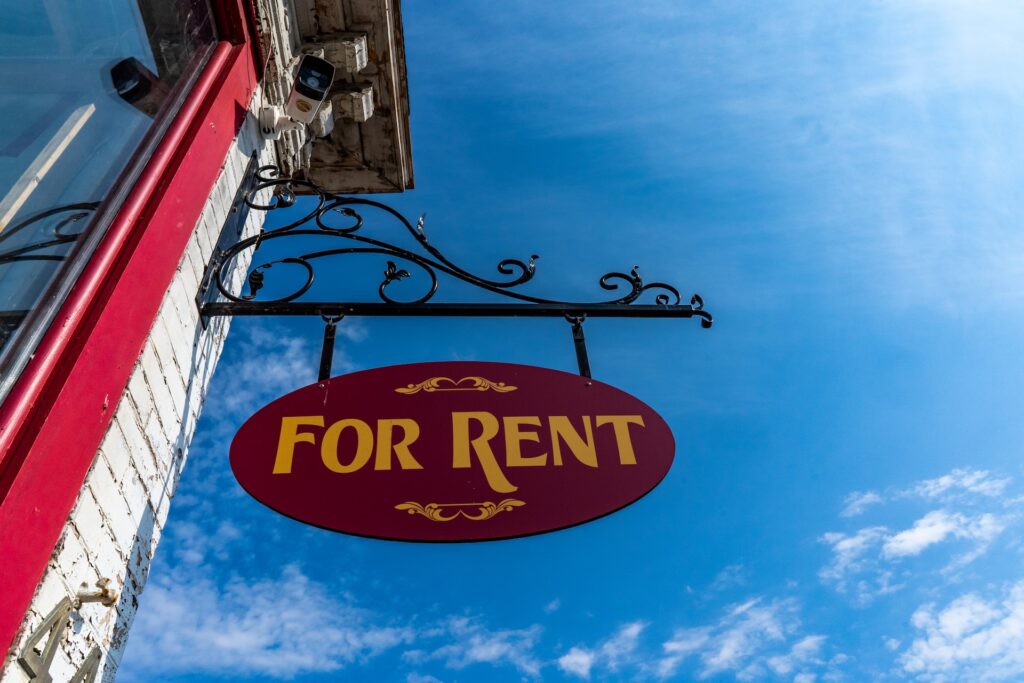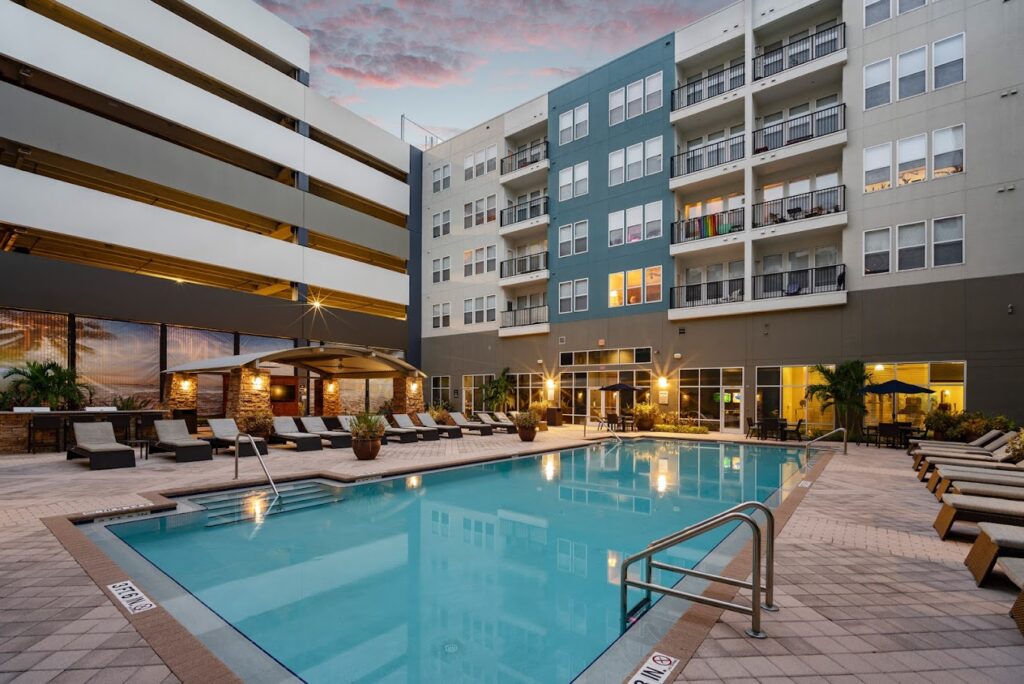
Is Renting Really A Waste Of Money?
Simply put, renting is not a waste of money. In fact, renting provides us with more value than essentially any of the other expenditures we can make. In return for paying rent, we receive shelter and housing which are essential for having a safe, healthy, and happy life.
Contents
Renting Is Not A Waste Because It Provides Utility
In addition to providing value, renting provides us with a significant amount of utility. As with any form of housing, renting provides us with a places to rest, prepare food, and enjoy entertainment. In addition to these basics, renting can provide even more usefulness that is unique to each of use.
For example, your rented home can serve as the nursery where you raise your children, an office for work, a creative studio your passions, a fitness studio, or even the place where you romantic dates.
My current studio apartment provides me with several of these functions. I use it as my home office for work and my creative space for producing blog articles and podcast episodes. My rental also serves as my own personal spin studio where I do my cardio sessions. And soon, it’ll serve as my YouTube studio.
The possibilities of what you can use your rental for are endless.

Renting Is Worth It Because It Provides Satisfaction
Gaining value and utility from renting should lead to satisfaction. If you are currently renting, consider all of the value you are getting from your home and think of all the ways you benefit from it.
Sure, there will always be bigger and nicer places to live. But this could be said for practically every person on earth. If you do find that your rental is not providing you with satisfaction, you must move to a better suited location. One of the benefits of renting is that it provides you with a great deal of flexibility – so you should certainly take advantage.
Why Do People Say Renting Is A Waste Of Money?
Why is it that so many people consider renting to be a waste of money in spite of the fact that it provides us value, utility, and satisfaction?
The answer is because we insist on comparing renting to homeownership. That is, our basis for gauging the merits of renting are predicated on the merits of being a homeowner. For example, a common complaint about renting is that it is a waste of money because “you are paying someone else’s mortgage” or “not building equity”.
Assessing the merits of renting based on the merits of owning would be known as analogical reasoning. And while often useful, this line of reasoning often causes a lot of angst and confusion when it comes to determining whether renting is worth the money we pay for it.
We Need To Stop Comparing Renting To Owning
Constantly comparing things we have relative to what “could be” is a sure fire way to be unhappy. As such, we should avoid assessing the worthiness of renting against the merits of homeownership. Instead, a better approach would be to measure renting and buying by their individual merits. In doing so, we could all better appreciate renting for the very real positives it provides.
Can Renting Ever Be A Waste Of Money?
Of course, there are times when renting could absolutely be a waste of money. For example, renting will always be a waste of money if it does not provide you with value, utility, and satisfaction. At minimum, you need at least 2 of the 3 to consider renting worth it.
There are other situations where renting can also be a waste of money. Here are handful of instances where a person would be wasting money on rent:
You Rent Your Entire Life And Fail To Invest The Savings
By and large, renting is cheaper than owning. This is not only true in the current year of 2023, but also true historically. Renting is typically cheaper because it doesn’t involve all of the upfront and ongoing costs associated with homeownership.
With this in mind, one would expect renters to fare better toward long term wealth. But does this actually happen? Sadly, it does not.
As it turns out, homeowners are 40 times wealthier than renters according to the Federal Reserve’s latest Consumer Finance Survey. According to the report, homeowners had a median net worth of $255,000. Compared to just $6,300 for renters.
The reason for this is that renters typically fail to save and invest the additional savings they gain from renting. While at the same time, homeowners enjoy the forced savings of ownership and the appreciation of property value over time.
In this case, those who rent are wasting money because many years later they haven’t taken advantage of their overall cheaper living arrangements. Many renters will look up after several decades and realize they haven’t built any nest eggs. They are also unlikely to be in a strong position to buy as they have been priced out of an ever more expensive market.
More Than 30% Of Your Take Home Pay Goes To Rent
A traditional recommendation across the financial industry is to pay no more than 30% of your gross income on housing. This is a very solid recommendation, but I know we can do better. That said, I recommend that you aim to spend less than 30% of your net / take home pay in rent each month.
Personal finance is all about cash flow. Therefore, it doesn’t really benefit us to make financial decisions based on our gross incomes because we will never see a good portion of that money to begin with. Paying taxes and other deductions are a given, so why consider them in the first place?
Running your life and being successful with money really boils down to cash flow.
Given that, spending 30% of your net take home pay limits your cash flow and may signal that you are living beyond your means. The place you rent should provide you with value and satisfaction, which would not be the case if you end up in a financial crunch.
You Pay Significantly More In Rent Than You Would For Owning A Similar Property

There exists a crossover point where the benefits of renting are substantially outweighed by potential cost savings from owning a similar property. This may not always be the case for every renter in every situation – but we should still be on the lookout for it in our own lives.
My recommendation is you rent for no more than 30% of what a mortgage payment would be for the same property.
Renting could be a waste of money beyond 30% because you are simply paying substantially more for the same product. Any short term financial gains in value from renting would be negated beyond this point. Not to mention, you will also be missing out on potential long term benefits from owning. A double whammy!
You can determine your numbers by checking list prices and running purchase scenarios for various interest rates and downpayment amounts. This doesn’t mean that you should instantly look to buy if owning would be 30% cheaper. Instead, you should spend some time reflecting on your current living arrangements and ask yourself if buying is a wiser move in the near future.
Changing rentals to find better value is also a solid option that you may want to consider.
Overpaying For A Substandard Living Arrangement
It should go without saying, but we should all live in adequate arrangements. A place that is functional, safe, and clean are bare minimums regardless of your station in life. Therefore, you are always wasting money on rent if you don’t receiving these basics in return.
I once live in a nice condo in a good neighborhood that was shot up in a drive by shooting. Because of this, I canceled my lease and moved out of that place within a week of the incident.
To my surprise, neighbors were shocked that I was leaving. This showed me that they may have been more comfortable living in an unsafe environment than they should have been. After all, my unit was next door to theirs.
Not everyone will be able to move up into a better rental overnight like I did. Still, we should all set an expectation that our housing meets the basics. And work to move in the right direction if we find that our current arrangements do not.
You Don’t Take Advantage Of The Amenities Your Rental Has To Offer
My last apartment complex touted itself as a “luxury” property because it was outfitted with a well stocked gym and picturesque pool.
I really enjoyed that place, but the problem was that I never used the pool. To be precise, I used the pool exactly zero times my entire year there. This was a clear indication that I was paying for more than I needed. Thus, part of my rent payment was actually a waste of money.
What’s more is that my rent was going up by 17% upon renewal, so I decided to downgrade to an older studio that was 25% cheaper. By moving down, I now get even more overall value from renting because I maximize the utility from my current place. I’m not wasting money on useless amenities, and am able to pocket the difference.
The same applies to you. Take a look at your amenities and ask yourself if they are providing value. If not, start using them or move down to something a little less nice so you can stop wasting the money.

Your Rental Forces You Into A Long Commute
Time is your friend if you spend it wisely. Unfortunately, commuting is never a wise use of time and should be minimized at all cost.
One of the best perks of renting is the increased flexibility in being able to relocate easily due to the short term commitments. Therefore, renters should take advantage of this benefit by moving as close as possible to their place of work.
Making this one adjustment has very powerful benefits. For one, you will simply spend less time traveling which means you will have more time for other things such as sleeping, exercise, or spending it with loved ones. Furthermore, reducing commute times will boost your mental health. And finally, you will save a lot of money that would have been spent on fuel, maintenance, and insurance premiums.
Because of this, you will be wasting money by renting if your rental is far from your job. Just add up all the costs in terms of time spent on the road, gas, and all of the hidden costs such as decreased mental health and lost opportunities of doing things you find more rewarding.
Renting Is Worth The Money If Done Properly
As we can see, renting is totally worth the money if we approach it the right way. Ideally, we take full advantage of the benefits of renting so that we can maximize the value, utility, and happiness that we get from it. The good news is that we can always move to a better place if these things are not present in our current rentals. Cheers to flexibility!
I’d like to hear from you guys on the matter. Is renting really just a waste of money or does it provide a lot of value?
